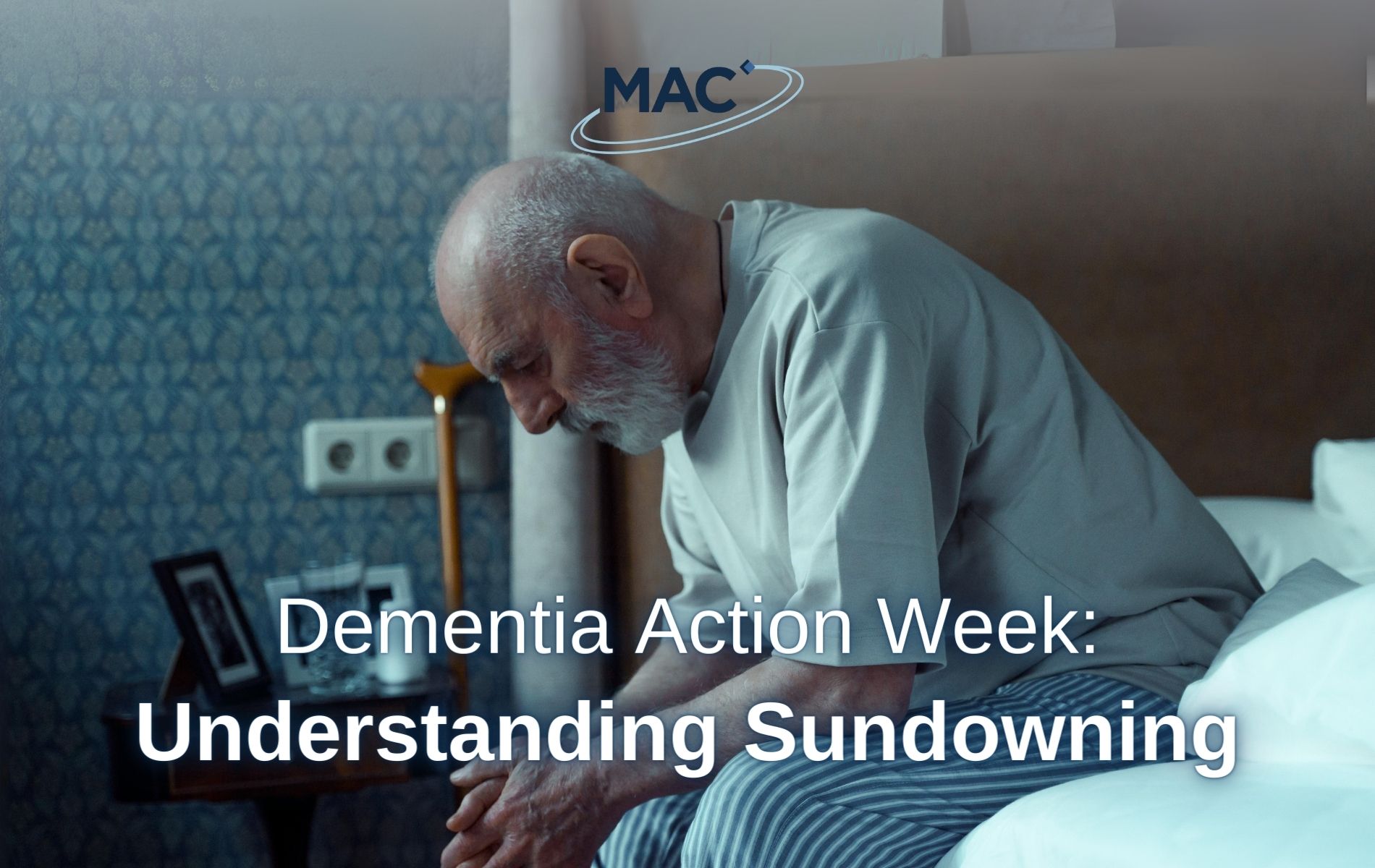As afternoon turns into evening, something may shift within those living with dementia; the once familiar environment can transform into a realm of confusion, agitation, and anxiety. This phenomenon, known as sundowning, presents a formidable challenge for individuals with dementia and their caregivers alike. With Dementia Action Week upon us, it’s crucial to raise awareness of sundowning and its impact on those affected.
What is Sundowning?
Sundowning refers to a pattern of agitation, confusion, and behavioural changes that often occur in the late afternoon or early evening among individuals with dementia. It is estimated that around 900,000 people in the UK are living with dementia, with this figure estimated to rise to 1.6 million by 20401.
While the exact cause remains unknown, experts believe it may be linked to a combination of factors, including not enough exposure to sunlight, unmet physical needs (like fatigue or hunger), and changes in brain chemistry2.
Imagine the world through the eyes of someone experiencing sundowning: as daylight wanes, shadows lengthen, distorting familiar surroundings. Simple tasks can become daunting, and once-comprehensible routines may begin to unravel. The transition from day to night can become a journey into the unknown, triggering fear and uncertainty. Studies estimate up to 66% of people living with dementia experience sundowning3.
Sundowning and Caregivers
For caregivers, witnessing a loved one succumb to sundowning can be heart-wrenching. The person they once knew fades into a stranger plagued by distress and discomfort. Patience can wear thin as carers navigate agitation and confusion, which can often leave carers seeking solace for their loved one and themselves.
How can you support someone experiencing sundowning?
By raising awareness of sundowning, we can empower caregivers with knowledge and strategies to support their loved ones effectively with compassion and understanding.
Creating a calming environment is paramount. Soft lighting, soothing music, and familiar objects can help alleviate anxiety and provide a sense of security. Establishing a consistent routine can also provide stability for individuals with dementia, offering predictability in a world fraught with uncertainty.
Moreover, engaging in meaningful activities during the day can promote better sleep hygiene, potentially reducing the severity of sundowning symptoms. Physical exercise, cognitive stimulation, and social interaction are vital components of a holistic approach to dementia care. One study has shown that regular exercise for patients living with mild dementia results in significantly less unexpected hospitalisations compared to those who do not exercise4.
Additionally, medication management and consultation with healthcare professionals may be necessary for individuals experiencing severe sundowning symptoms.
Above all, compassion and empathy are the cornerstones of effective dementia care. Sundowning may test a carer’s patience and resilience, but it also offers an opportunity to deepen the understanding of the challenges faced by those living with dementia. By approaching sundowning with empathy and a willingness to listen, we can foster a supportive environment where individuals with dementia feel seen, heard, and valued.
Register for a Memory Assessment
Did you know that MAC Clinical Research established some of the very first memory clinics in the UK? MAC continues to proudly provide free memory tests to the local communities in Lancashire, Merseyside, South Staffordshire, South Yorkshire, Teesside, and West Yorkshire.
If you or a loved one is over 50 years old and have concerns about memory, register for a free memory test via our Memory Assessment Research Clinic’s webpage.
Similarly, if you have dementia, or are caring for someone living with dementia, and would be interested in learning more about research opportunities with MAC and would like to be notified of any future dementia or memory-related research studies, register on our volunteer database, and we’ll be in touch.
1 The London School of Economics and Political Science – Projections of older people with dementia and costs of dementia care in the United Kingdom, 2019–2040
2 Alzheimer’s Association – Sundowning and dementia
3 Frontiers in Medicine – Sundowning in Dementia: Clinical Relevance, Pathophysiological Determinants, and Therapeutic Approaches
4 Medicine – The impact of exercise on patients with dementia






